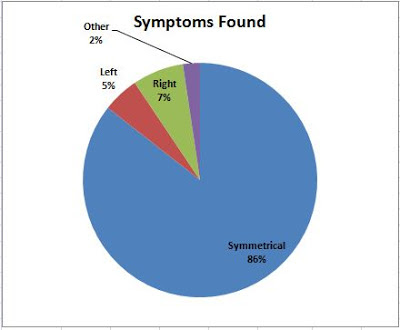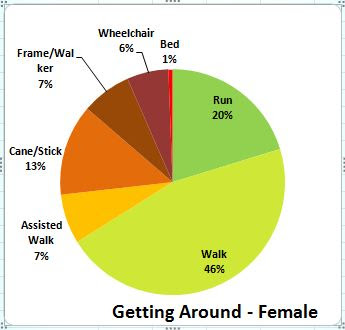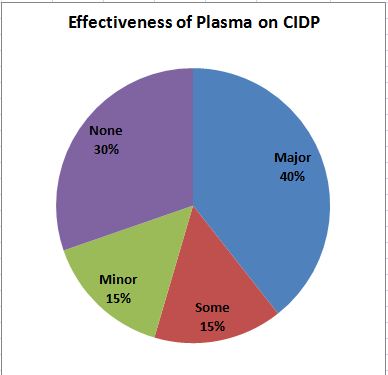The results below are about physical treatments and the spread/symptoms:
These are the main Physical treatments listed. I have taken Exercise Program to include any sort of exercise and Hydrotherapy to include swimming. The two graphs below are for GBS & CIDP:
The wide variation seen in the results above are entirely expected, as in theory GBS is (acute) therefore the majority of people who had this disease have recovered to some degree or another. For CIDP there only one quarter who have no treatments and I would have expected this to be higher. Don't forget this is those who answered this particular question and as the numbers were fairly low in comparison to the total, the others may not have had any, but not stated so.
For my own condition, I am in the CIDP/None camp, this is primarily down to the fact that all I seem capable of is going to work and eating/sleeping, if I try and exert myself anymore then my body just overloads and as I have to earn a wage for my family that is all I can do. I am ever hopeful the situation will improve.....
Regarding the spread of the condition:
As can be seen the spread is primarily inwards (defined by me as from the extremities into the core, so feet and hands first). There is some minor variation between GBS & CIDP. With GBS having a higher number with inwards (106 to 95) and CIDP having the majority of people who answered Outwards (25 to 12), so two thirds.
The symptoms are clearly the same for both sides of the body. With no real variation between GBS & CIDP or male & female - this is not surprising. There are not enough answers for me to analyse the results for the other variants.
Next time I will be looking at nerve pains.....




















































